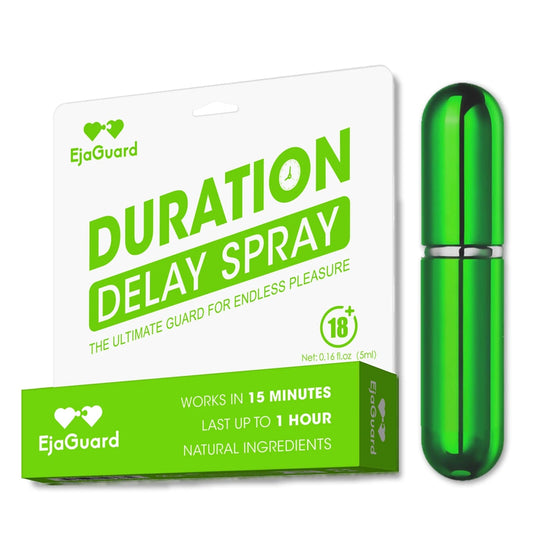Dado que el herpes es una de las infecciones de transmisión sexual más frecuentes, ¿es posible que se propague a través de los besos?

Según la Organización Mundial de la Salud , aproximadamente 3.700 millones de personas menores de 50 años están infectadas con herpes oral. Sorprendentemente, muchas personas con herpes oral desconocen su infección, ya sea porque no presentan síntomas o porque no los reconocen.
Esto nos lleva a la pregunta: ¿Es posible contraer herpes a través de los besos?
En resumen, la respuesta es sí, pero antes de entrar en pánico, es importante entender cómo se propaga el herpes. Este conocimiento es fundamental para protegerse a sí mismo y a su pareja.
Sigue leyendo, ya que en este artículo responderemos todas tus preguntas más urgentes sobre el herpes oral. De esta manera, podrás mantenerte proactivo, informado y seguro respecto de los posibles riesgos asociados con los besos.
¿Se puede transmitir el herpes a través de los besos?
El acto de besar puede ser una expresión apasionada e íntima de afecto hacia una pareja, una aventura o un amigo con derecho a roce. Lamentablemente, también conlleva el riesgo de contraer herpes.
El herpes oral, también conocido como HSV-1, es una infección viral que se manifiesta como herpes labial alrededor de la boca, los labios, la garganta, las encías o en la cara.
Cuando aparecen estos síntomas, se habla de "brote", que es la etapa más contagiosa del virus. Durante este período, es más probable que el virus se propague a través del contacto piel con piel, incluidos los besos.
Sin embargo, es esencial reconocer que el herpes también puede transmitirse sin síntomas visibles del virus.
¿Cómo saber si alguien tiene herpes?
Se replica dentro de las células de la piel, lo que provoca síntomas incómodos y, a veces, dolorosos. Esta etapa suele ser cuando la infección es más contagiosa.
Según la Dra. Thais Aliabadi , especialista en obstetricia y ginecología, los síntomas del herpes pueden aparecer entre 2 y 10 días después de la infección inicial y pueden persistir hasta 3 semanas.
Los síntomas comunes incluyen:
- Ampollas o llagas (pequeñas protuberancias llenas de líquido que generalmente se desarrollan en grupos)
- Picazón, hormigueo y/o dolor
- Enrojecimiento
- Glándulas inflamadas
- Náuseas
- Fatiga
- Fiebre o escalofríos
- Músculos doloridos o adoloridos
Los síntomas pueden ser provocados por la menstruación, fluctuaciones hormonales, exposición al sol, estrés y fiebre.
¿Cuáles son los dos tipos más comunes de virus del herpes?
Existen hasta ocho tipos distintos de virus del herpes que infectan a los humanos. Sin embargo, solo dos de ellos son los más comúnmente reconocidos.
Los dos tipos más comunes incluyen:
1. Virus del herpes simple tipo 1 (HSV-1):
Este virus está asociado con el herpes oral y suele aparecer como herpes labial o ampollas alrededor de la boca, los labios, la garganta, las encías o en la cara.
2. Virus del herpes simple tipo 2 (HSV-2):
Este virus está relacionado con el herpes genital, que se caracteriza por llagas o ampollas en la zona genital, incluida la vulva, la vagina, el cuello uterino, el ano, el pene, el escroto, las nalgas o la parte interna de los muslos.
¿Cómo se propaga el herpes a través de los besos?
Dado que el beso implica una combinación de contacto directo y piel con piel, junto con la transferencia de saliva, proporciona un entorno ideal para la transmisión viral.
Según Johns Hopkins Medicine , también es posible que el herpes oral provoque herpes genital y viceversa. Ambos tienen más probabilidades de propagarse a través de los besos y el sexo oral.
¿Existe algún tipo particular de beso que tenga más probabilidades de transmitir el herpes oral?
Por ejemplo, el beso francés o el beso profundo implican un contacto prolongado de los labios y un mayor intercambio de saliva.
Si bien el riesgo de transmitir herpes oral a través de besos con la boca cerrada es menor en comparación con los besos franceses o profundos, aún es posible que el virus se transmita a través del contacto piel con piel (es decir, solo labios con labios).
¿Es posible transmitir el herpes a alguien sin experimentar un brote activo?
Después de un brote, el virus del herpes se retira a las células nerviosas, donde se vuelve inactivo o "se apaga" temporalmente. Aunque muchos síntomas del brote desaparecen, el virus puede reactivarse más adelante y provocar otro brote.
Aunque no hay síntomas visibles cuando el virus está latente, aún puede ser contagioso y transmitirse de persona a persona a través de los besos.
¿Se puede transmitir el herpes al compartir bálsamo labial o lápiz labial?
Sí, el herpes se puede transmitir a través del contacto boca a boca, por lo que puede contagiarse simplemente al compartir bálsamo labial o lápiz labial.
Como se mencionó anteriormente, es mucho más contagioso durante un brote activo cuando una persona ya presenta síntomas.
¿Cómo puedo minimizar el riesgo de transmitir el herpes oral?
Para minimizar el riesgo de propagación del herpes oral, considere lo siguiente:
1. Evite el contacto con los labios, la boca o la piel de cualquier persona que experimente un brote de herpes oral activo.
2. Evite besar o compartir objetos personales que requieran contacto piel con piel (como tazas, cubiertos, toallas, etc.) mientras usted o su pareja tengan un brote activo de herpes labial.
3. Lávese las manos regularmente, especialmente después de tocar un herpes labial.
4. Use bálsamos labiales o cremas que contengan protector solar sobre el herpes labial para protegerlo de la exposición al sol.
5. Comuníquese con su pareja sobre los síntomas, brotes o recidivas.
6. Utilice juguetes sexuales y barreras dentales limpios y desinfectados durante las relaciones sexuales y el sexo oral.
7. Hable con su proveedor de atención médica sobre los medicamentos antivirales para minimizar la frecuencia y la gravedad de los brotes (como Valtrex o Zovirax).
CONCLUSIONES CLAVE:
1. El herpes oral es un virus muy extendido que afecta a 3.700 millones de personas menores de 50 años y muchas de ellas pueden desconocer que están infectadas.
2. La transmisión del herpes oral a través del beso se debe al contacto directo piel con piel y al intercambio de saliva.
3. Comprender cómo se propaga el herpes e implementar medidas preventivas puede reducir significativamente el riesgo de transmitir o contraer el virus.
 Buy Now
Buy Now



